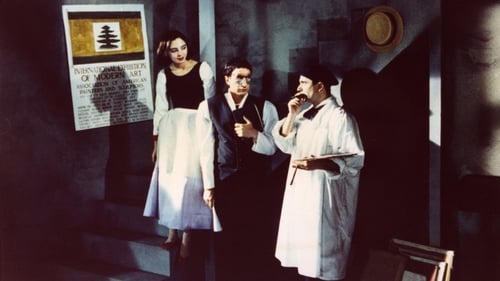
Sound Editor
No coração da mata, fugindo do garimpo, Pedro ouve um lindo canto e encontra Iara, a Mãe-d'Água. Nas lendas, Iara é retratada como uma linda mulher que atraía os homens com sua beleza e com sua voz.

Music
Após um roubo, um ladrão, um operário e um menino de rua têm seus caminhos cruzados.

Sound
A group of young, working children are terrorized and robbed by their stepfather.

Music
A group of young, working children are terrorized and robbed by their stepfather.

Music
A world of strong colours between documentary and fiction, centered on the life and work of modernist painter Amadeo de Souza Cardoso.

Music
A acção decorre em Lisboa, numa pensão da nova Avenida Amirante Reis cerca de 1918-26, expondo - através duma encenação de valores cromáticos - os amores duma mulher de passado misterioso e futuro incerto. Dona Elvira promete arranjar emprego a José através da típica cunha portuguesa. Em paralelo, revelam-se aspectos bizarros e figuras excêntricas da vida citadina, incluindo a tragédia da actriz Maria Alves - assassinada pelo próprio empresário - já recriada por Reinaldo Ferreira, em O Táxi Nº 9297 (1927)

Music
This film, made as a "twin" of A ilha dos amores, was planned as a poetic documentary on the enigmatic life of Wenceslau de Moraes (1855-1929), the great Portuguese writer who lived in the Far East. Verbal testimony, photographs, manuscripts, images of Lisbon, Macao, Kobe and Tokushima in Moraes' time are set side by side with A ilha dos amores and with de Moraes' writings. The director, Paulo Rocha, visited places where Moraes was still remembered, interviewed the writers descendants, consulted archives, rummaged through memories, appointment books, postcards, diaries and calendars from the private life of the 19th century. And above all he set out on a new journey, from Lisbon to Macao to Kobe until he reached Tokushima, where Moraes lived through the final ruin of his life and where Rocha tracks down, between the city and the cemetery, the living presence of places and the memories of individuals.

Music
This film depicts the life of the 19th-century Portuguese writer Wenceslau De Moraes by means of nine ancient ballads from China. The writer married a Chinese woman after he left his wife and family to go live in Macao. Later, he moved to Japan where he fell in love with a Japanese woman, staying in Japan for the rest of his life. Mixed in with the career and loves of Moraes is the history of Portugal at home and in its colonies.

Music
Dina (Maria Santiago) is a teenager brought up by her grandmother, employed as a housekeeper for a fairly well-off family. Since Dina only has her grandmother, she spends her time fantasizing about her life and reading comic-book love stories -- activities that do nothing to improve her dim perspective of reality. Due to these handicaps and her own inexperience, she gets involved with Django (Luis Lucas), a shady character who decides to use her as bait to attract men and then rob them. One day when both are in a taxi with robbery in mind, the driver gets suspicious so Django shoots him, and so does Dina. She escapes and runs away -- though it seems like she has learned too little too late. This story unfolds against a time of upheaval in Portugal (mid-1970s) when the military government is formulating a constitution and social changes are happening everywhere.

Doutor Montello
Beto, um jovem playboy gigolô, convence seus amigos a invadirem uma casa para estuprar Marlene, uma mulher rica. Eles não conseguem completar a missão, mas a mulher se apaixona por Beto, que volta para se tornar seu amante. O caso dos dois, eventualmente envolvendo o marido de Marlene, causa problemas que os dois não conseguem resolver.






